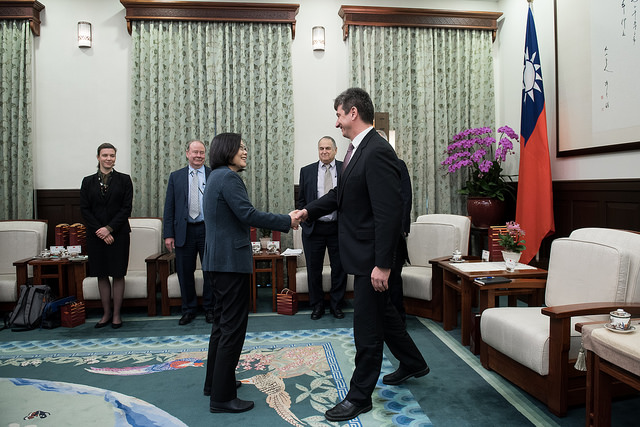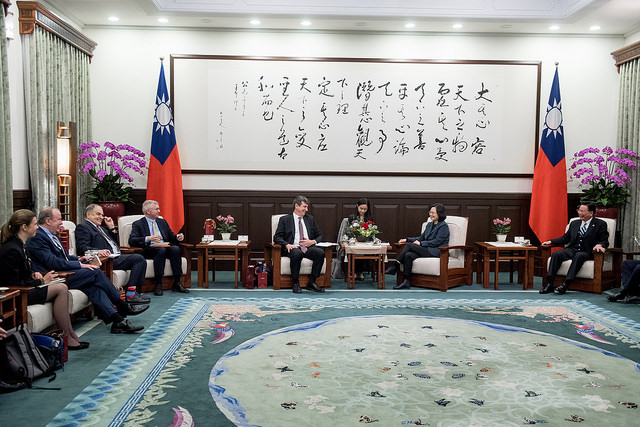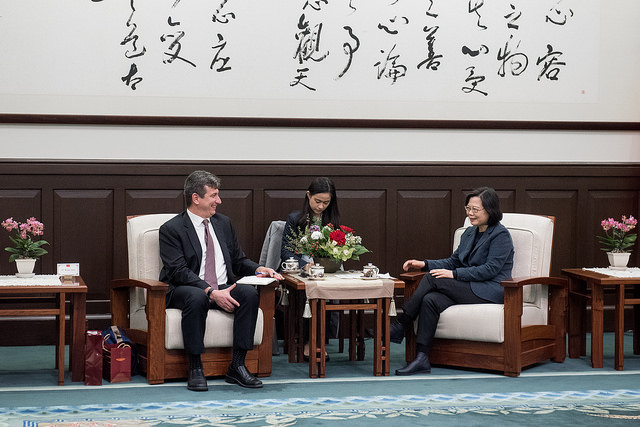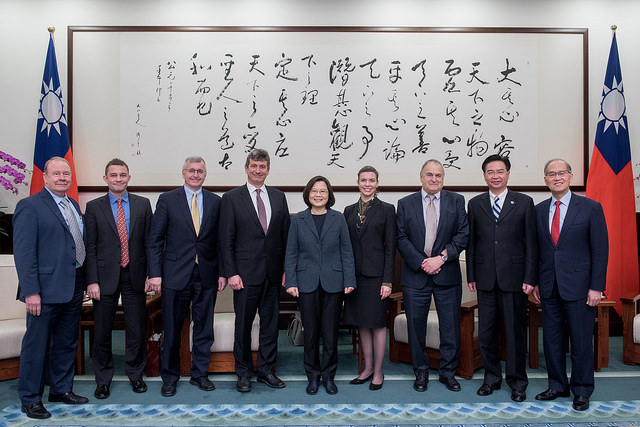News & activities
 News releases
News releases
On the morning of January 9, President Tsai Ing-wen met with a cross-strait affairs delegation from the Fairbank Center for Chinese Studies at Harvard University. Reiterating that under her administration cross-strait relations will neither be reckless nor return to the standoff, she also emphasized that maintaining the peaceful and stable status quo in the Asia-Pacific region is not Taiwan's responsibility alone, but a goal that requires the concerted efforts of all parties in the region.
In remarks, President Tsai said she was pleased to welcome a delegation from the Fairbank Center to Taiwan again, and looked forward to hearing their forecasts and analyses for the coming year. The president also mentioned that the Fairbank Center is a leading center for academic research on the Asia-Pacific region with a long-standing relationship with Taiwan. She visited the Center in 2011 and spoke about Taiwan's policy challenges for the next decade, while also learning about the Center's efforts to promote research on, and exchanges with, Taiwan.
The president emphasized that the Asia-Pacific region presents both opportunities and challenges. The visitors having just completed a visit to Xiamen in mainland China, she also noted that everyone is interested in the opportunities and challenges of cross-strait relations. She then reiterated that under her administration, cross-strait relations will neither be reckless nor return to the standoff. But she also said she hopes all the visitors understand that maintaining the peaceful and stable status quo in the Asia-Pacific region is not Taiwan's responsibility alone, but a goal that requires the concerted efforts of all parties in the region.
President Tsai noted that for a period of time now, the People's Liberation Army has been quite active in the Pacific Rim. Its activities compel countries in the region to respond, and increase the risk of misunderstandings and mistakes. She made special mention of last week's unilateral announcement by the mainland Chinese government—without negotiating with Taiwan—that it would begin using the M503 aviation route, impacting air transport safety and undermining the stable status quo that we have consistently worked to maintain. In response, said the president, she has directed the national security team to formulate an appropriate response designed to "minimize national risk" and "maximize regional cooperation." She also expressed hope that the international community understands Taiwan's objectives and will support both sides to begin talks on this issue as soon as possible.
The president also noted that strengthening national defense has always been one of the government's most important policy priorities. "Taiwan can only be secure by having the ability to defend itself and repel an invasion." As commander-in-chief of the armed forces, she and the nation's military leaders have consistently worked to raise military morale and national defense capabilities. She has also pledged that, going forward, the national defense budget will show a steady increase every year.
Finally, President Tsai said she hopes the Fairbank Center will continue to support Taiwan, and once again thanked her guests for their valuable efforts to upgrade Taiwan-US relations.
The delegation included Michael Szonyi (Director of the Fairbank Center), Thomas Christensen (co-Director of China and the World Program at Princeton University), and Steven Goldstein (Director of the Fairbank Center's Taiwan Studies Workshop).












